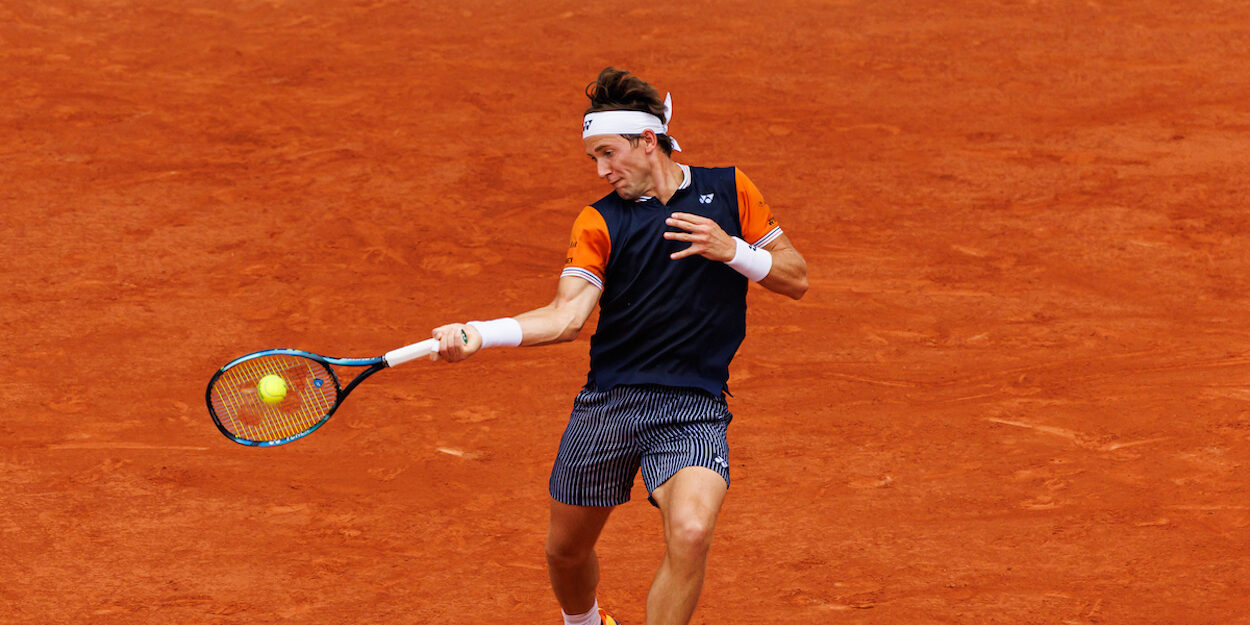
“It felt like a hamster wheel”: Casper Ruud talks about struggles
The world No. 15 opens up about burnout, therapy, and how journaling and self-reflection helped him reclaim his form and joy.
Casper Ruud, currently riding a strong clay-court run into the Madrid Open finals, has offered an honest look into the mental toll of life on the ATP Tour. Speaking with press this week, Ruud revealed he’s been working with a mental coach to address feelings of burnout and stagnation. “It’s a bit of a hamster wheel,” Ruud admitted. “You are always just thinking about the next tournament. It’s not healthy. You want to live a life also outside tennis.”
The Norwegian, known for his calm demeanor on court, said he felt mentally “down” earlier this season and sought professional support to break through what he described as a plateau. “I was getting frustrated. I felt like I wanted to do more on court, and I wasn’t able to,” Ruud said. “I realized I had to widen the circle of my level as a tennis player.” He’s since turned to daily journaling, more structured rest, and deeper work on perspective and purpose.
His results have followed. After a disappointing start to 2024, Ruud has made deep runs in Barcelona, Monte Carlo, and now he is a finalist in Madrid. But he says the wins aren’t the only benefit. “I feel a bit more refreshed. I feel a bit more positive about the future. I feel like I’m back to myself in a way,” he said, crediting his work off-court for allowing him to feel more freedom during matches.
Casper Ruud also demonstrated emotional intelligence beyond his own experience. After Iga Swiatek’s tough semifinal loss in Madrid, where she left the court in tears, Ruud took a moment to publicly encourage her. “You’ll be back stronger,” he said. It was a simple but meaningful gesture from a player who seems to be growing into a leadership role in tennis.
Inside the Baseline…
Ruud’s vulnerability is a breath of fresh air in a sport that often values stoicism over openness. His willingness to talk about burnout, not just results, signals a shift in the culture of men’s tennis more towards humanity. By showing support for Swiatek, he shows fans and players that resilience isn’t just about pushing through; it’s also about reaching out. He has always been calm on court, and it proves that nobody really knows what is going on inside someone else’s head.
READ NEXT: Jeff Blackburn appointed Chairman and CEO of Tennis Channel
![]() Join >> Receive $700/£600 of tennis gear from the Tennishead CLUB
Join >> Receive $700/£600 of tennis gear from the Tennishead CLUB
![]() Social >> Facebook, Twitter & YouTube
Social >> Facebook, Twitter & YouTube
![]() Read >> World’s best tennis magazine
Read >> World’s best tennis magazine
![]() Shop >> Lowest price tennis gear from our trusted partner
Shop >> Lowest price tennis gear from our trusted partner


